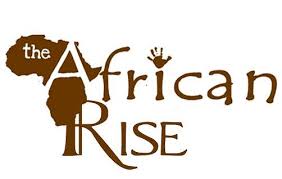
Good day, my students, and friends. Welcome to this program organized by Codewit Global Network-
Today I will be creating a platform for a healthy debate and foundation for the total eradication of inferiority complex been displayed by some African people.
Don’t get me wrong because I am also of the opinion that African people should embrace the future and cast behind them the past humiliation and exploitation endured in the hands of the Victorians of London. But it is interesting to note that we, Africans can not achieve much success in some cases if we try to erase the past completely. Take for instance the idea of a patient and a doctor. A patient visits his doctor and reports that he is ill. The doctor, first of all, checks the patient’s history to know if his current sickness is related to a sickness he has suffered in the past, and if it is so, the doctor will check for what kind of medication that was prescribed to the patient before. From there, he can find some solution or will make a high-quality decision on what drugs to prescribe in order to cure the patient’s illness.
With this analogy my friends, we can see that most times, knowing the root cause of our problem will help us address the issues or find a solution to them. So in my opinion, to reconstruct the African mindset and to correct the impression of the new breeds of European youth and other races, we must revisit our past history to help us understand what went wrong and in doing that we try to address big but subtle issues that were prominent during those periods which may help us understand what went wrong and may proffer a solution to our problems as we embrace the future.
As you journey with me, I will offer an interpretation of Africa that is remarkably different from views about Africa and Africans widely current in the past and sometimes current still today.
In 1861, the distinguished Victorians of London’s ethnographical society found themselves with a delicate problem. They wanted to validate their defined proposition of the inferior nature of other races. They had invited a foreigner, a gentleman from France Du Chaillu, Paul Belloni, to speak on his travels through the unexplored forests of equatorial Africa., and why not, to justify their intent, these men were seen as people who took pride in a liberal breadth of international outlook. Unfortunately, this French gentleman brought a contrary view from his extensive exploration in equatorial Africa. He said to them that these people might be other than they seemed. He had even spoken with some respect of African religion especially of the Mpongwe. To these men, this finding had not proved satisfactory.
Feeling that something must be done to accomplish their mission, the ethnographers looked for another traveller, this time captain Richard Burton. He, they knew, could be relied upon to use his great authority and superiority instinct in the proper way.
Captain Burton did not let them down; he travelled to Africa with his stereotypical tendency and foregone conclusion. In his report, he believed that the findings of Du Chaillu, Paul Belloni maybe one out of the lot. Probably he was lucky to meet with a better lot than usual.
In Burton’s view, Africans have failed to develop from the primitive to the less primitive. They had also reached a point of helplessness at which if left to themselves, they would never do any better. In that great schedule of hierarchical progress from savagery to civilization imagined by the more conservative Victorians, with Europe at the peak and zenith of the line, the Africans were simply not in the race. Perhaps they had once set out, though this was more than doubtful: if so, they had long stopped running, exactly why was not known. But the reason, whatever it might be, was generally agreed to lie in some fatal deficiency of their nature. Some experts thought it was a matter of the African’s brain being too small for civilized development. Others argued that the root of the troubles lays not so much in brain size as in diminished frontal lobes, or an insufficiently reliable “supragranular layer of cortex”. The results, in any case, were understood to be deplorable. Once an African had become adult, Burton opined in a view widely accepted that “his mental development is arrested, and thenceforth he grows backwards instead of forward”.
Defended by their myopic view, these people hold firm to their hierarchies of racial progress and found plenty of evidence to fortify them. It followed that the evolutionist had clearly got things wrong.
Although old views about Africa are worth recalling for another reason, though vanished from serious discussions, they still retain a kind of underground existence. The stercoraceous sediment of Burton’s opinions, and of others such as Burton, has settled like a layer of dust and ashes on the minds of a large number of otherwise thoughtful people and is constantly being swirled about. What this leads to, despite all factual evidence to the contrary, are endless suspicions that most writers were possibly right when they write about the natural and inherent inferiority of Africans. They hold that the African society is profoundly different not only from the white man but also from other human types; or that Africans have contributed virtually nothing to the civilization of the world. However scientifically mistaken, these notions apparently remain part of our culture.
But today, with what we know, we can see that all these speculations are a collection of absurd reconstruction, unsupportable hypotheses and conjectures, wild speculations, suppositions and assumptions, and, especially what I may call plain nonsense.
In the next episode, we will discuss the formative origins of African people, their history and their contribution to world civilization.
Stay tuned.



